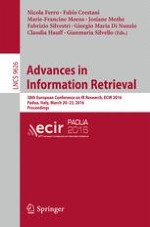2016 | OriginalPaper | Chapter
Key Estimation in Electronic Dance Music
Authors : Ángel Faraldo, Emilia Gómez, Sergi Jordà, Perfecto Herrera
Published in: Advances in Information Retrieval
Publisher: Springer International Publishing
Activate our intelligent search to find suitable subject content or patents.
Select sections of text to find matching patents with Artificial Intelligence. powered by
Select sections of text to find additional relevant content using AI-assisted search. powered by
